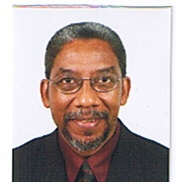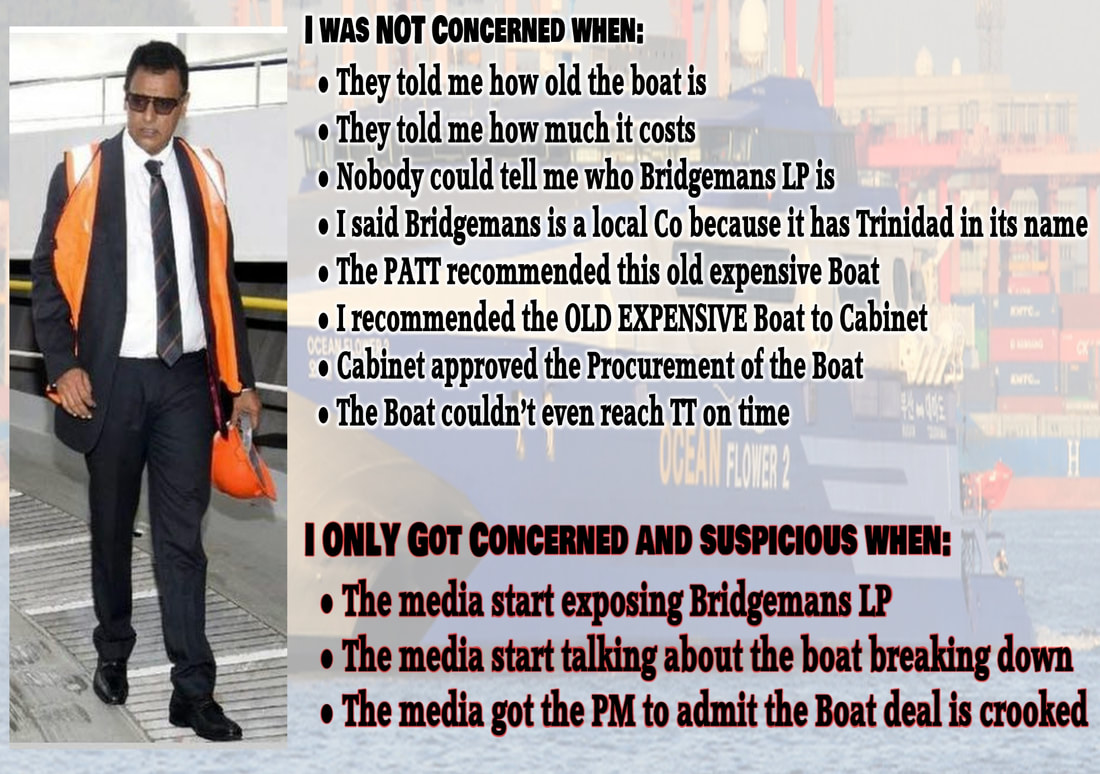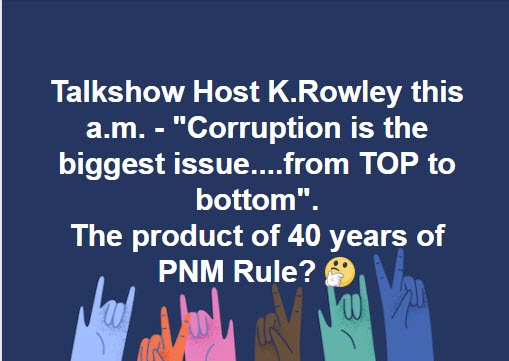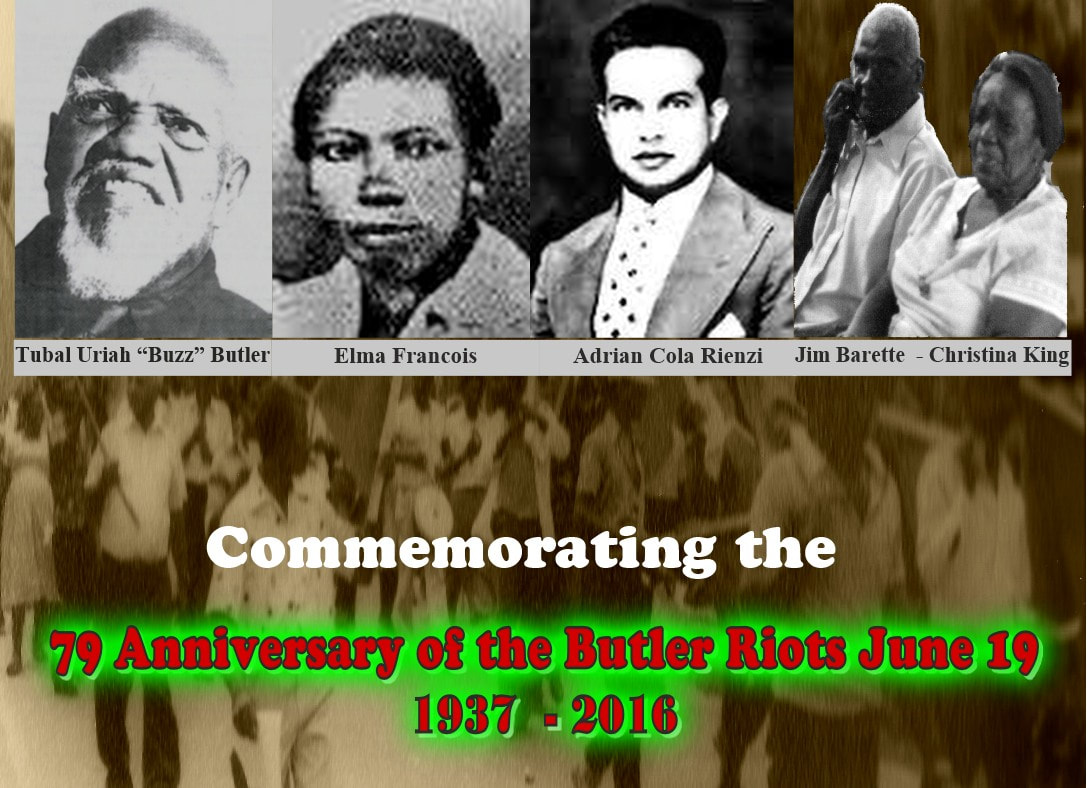 It is hard to believe that 30 years have flown by since Lord Funny asked searching questions in his 25th Independence anniversary calypso. This August 31, in assessing the state of our nation-building project, we must update Funny and ask every citizen – 55 years are gone – How yuh feel? How have we fared along this road having formally taken charge of our destiny; having taken the reigns and assumed responsibility for our nation and our future, with no colonial master exercising power in our land? This is the important critical assessment we must make after 55 years of having an anthem, flag, coat of arms and other trappings of sovereign control. SAFEGUARD OUR UNITY When we celebrated the golden anniversary, a cultural activist and historian suggested that our Calypsonians have chronicled our journey with what he described as patriotic songs. Tracing from Lord Brynner’s Trinidad and Tobago Independence to Benjai’s Trini, he produced a ‘Top 25 Patriotic Calypso Chart’ (see chart). A central theme of most of these songs is UNITY; the kind of unity within our ethnic diversity and that is probably why they are also frequently referred to as ‘nation-building’ songs. Brynner’s 1962 chorus was a plea to ‘live like one happy family’, a theme revisited in Sparrow’s Model Nation, Sniper’s Portrait of Trinidad, Rudder’s Ganges & The Nile, Merchant’s Let Us Build A Nation Together, Brother Marvin’s Jahaji Bhai and so many more. Increasingly, our celebrated ‘rainbow nation’ is under serious strain as various barbs of chauvinistic expression rear their ugly heads threatening to drive us down the path of suicidal division. The same is happening in elsewhere creating murderous theatres of catastrophic war and human destruction. Whether the label is ‘ethnic cleansing’ or ‘protecting our culture’, ‘history’ or ‘civilisation’, racism and racial and ethnic superiority pose dangers no less than when practiced by Hitler’s Nazi hordes or the Boers in Apartheid South Africa or during the genocidal chattel slave trade. This is a serious threat to the very future of our nation, more dangerous than any economic recession or the deepening decay of our social fabric. SIMMERING DISCONTENT Eight years after Independence, our youth rose in popular upheaval to vent the frustrations of their disappointment at the promises of “Massa Day Done” not being manifested as quickly or visibly as they were made to expect. Three years after Funny posed his 25th anniversary question, thousands of disappointed and distraught workers and vulnerable citizens were again on the streets demonstrating ‘how they felt’ reeling under the crushing burden of adjustment in the face of an unsustainable economy. On the 50 Anniversary, the simmering discontent with our nation-building project, found expression, not in mass action, but in the protestation of the Head of State when he voiced his disappointment at the failure to solve the fundamental Constitutional issue of the relationship between Tobago and Trinidad. In 2017, the failure to resolve this critical relationship as a free and equal union between our nations previously brought together by colonial power, is again reflected in the persistent issues surrounding the collapse of the air and sea bridges between the islands. After 55 years, discontent with the state of our independence progress persists, as our economy continues to be vulnerable to the global pressures on a single commodity-dominated structure, very much like the pre-independence sugar economy. PRESSURES ON OUR NATION Our governance structures remain cast in the mould of maximum Governorship with little by way of a more participatory system in which the majority of the body politic plays a meaningful role in the process of decision-making. Our social structure is being torn asunder as the measures taken in response to popular discontent in 1970 and later aimed at stamping out the spirit of rebellion among our youth, continue to spawn organised criminal enterprise on the foundation of the illicit drug economy and murderous criminality. Close to 500 people are the victims of murderous crime every year in a country that is not at war. Our women, children, elderly - no one is safe from the wanton criminality and failure of the state to guarantee the right of all citizens to safety and security. The failure to focus our nation-building on human development to make our society fit for human beings in the 21st century is now threatening the very UNITY of our nation to which Lord Brynner drew attention in 1962. CRITICAL TASKS FOR NATION BUILDING The necessity to build an economy which is sustainable and capable of meeting the constantly growing needs of our citizens for basic amenities and other needs is critical. The necessity to renew our political and electoral processes to put power in the hands of the majority and ensure a meaningful role for the citizens in decision-making so that their interests are central to all that society does is critical. The resolution of the Tobago-Trinidad relationship based on mutual respect and recognising the rights of the 2 nations that make up our country is critical. The creation of a state of security and safety by ensuring that the rights of all citizens are guaranteed and that criminality is suppressed is critical. Patriotism in this state of disappointment with the failure to deliver on the promise of Independence requires not talk, not rhetoric but concrete action to solve the fundamental problems still unresolved 55 years after the lowering of the Union Jack and hoisting the Red White and Black. The nation-building songs have unwittingly chronicled our ongoing failure to resolve critical issues. What we need is not more appeals to an abstract patriotism. Our citizens need to organise themselves in concrete actions to make real measured advances starting now and further successes recorded by the 56th anniversary and beyond. Then, we shall say Happy Independence in a meaningful way. Then, we will feel proud of what we have achieved as a nation. IMPLEMENT PROCUREMENT LEGISLATION NOW!
NO NEW FERRY PROCUREMENT WITHOUT PROCUREMENT SYSTEM IN PLACE! PM Rowley, this week, told the media that the Government-Bridgemans LP Procurement Deal was "Crooked". This morning, as a talkshow host on I95.5's "Barber Shop" programme, the same PM said the biggest issue for his Government is Corruption. It exists from Top to Bottom. Connect the dots. June 19: 78 Anniversary of the Butler Riots
Greetings to the Workers and People of Trinidad and Tobago! Today, we commemorate the 78th Anniversary of the anti-colonial uprising, led by the workers of this country and which began with what has become popularly known as the Butler Riots. Nowadays, June 19 is labelled Labour Day and promoted even by trade union leaders as the birth of the modern trade union movement in this country. In this way, the significance of the events which began on June 19 and spread across Trinidad and Tobago and further up the islands of the Caribbean is being narrowed to the granting of legal status to trade unions in this country. While in form, the struggle of that time appeared to be an economic one for improved wages and conditions of work, it was in content, a lot more. The workers, who engaged in those battles at the cost of more than 20 of their number killed across our country, unfurled the banner – Let Those Who Labour Hold the Reins! The Butler Riots thus became a declaration of intent by the workers of this country to constitute themselves as the nation and exercise sovereignty to build the society in the interest of the majority. The issue of Who is to Hold Power was put on the agenda. The character of that struggle was thus: · Anti-colonial and for independence for Trinbago · For Working Class Power · Democratic in demanding that the majority Hold the Reins of Power and for the recognition of the economic, political, trade union and other rights of the workers and poor in our society. The Anti-colonial uprising of 1937 forced the legalising of trade unions and the growth of the trade union movement. It also laid the foundation for the introduction of full adult franchise in 1946. It launched the independence movement in T&T and the Caribbean. To reduce its significance solely to the birth of modern trade unionism in this country is to rob it of its much wider and more powerful significance for the fight for independence and democracy in our society. To narrow its significance is play down the sacrifices of the martyrs and fighters of 1937. It is also to rob those who continue the fight for the aims of 1937 of the mobilising effect of the understanding of the connection between that foundation and the current battles for democratic renewal – good governance, power of the electors over the elected, the right of recall of elected representatives, for a free and equal union between Tobago and Trinidad. Greetings to those who are continuing the fight begun by Butler and the workers of 1937. |
AuthorI am a appalled at the loss of the simple skills of discussing ideas and sharing Opinions to DEEPEN ANALYSIS and UNDERSTAND DEVELOPMENTS to ARRIVE AT SOLUTIONS. Archives
April 2024
Categories |

About Clyde Weatherhead
Clyde has been involved in public life as a political activist, a trade unionist, Lawyer, Teacher and Author |
Connect With Clyde
Write to Clyde on Facebook Visit Clyde's Author Page on Amazon Go To Discussion on Facebook For Employment Relations Issues |




 RSS Feed
RSS Feed